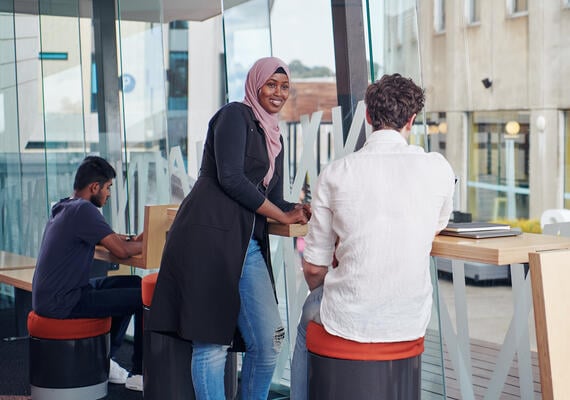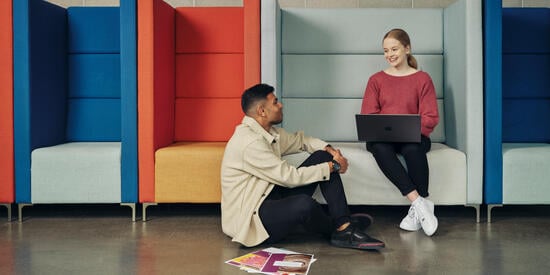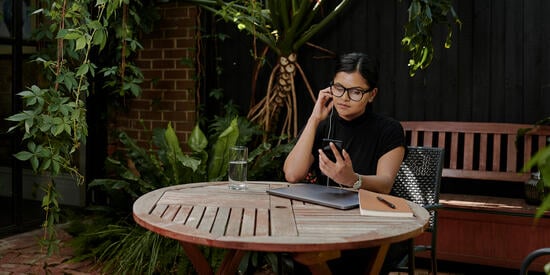
Study from a unique perspective
We teach students how to carry out research projects using both qualitative and quantitative techniques. We're also the only social science discipline in the faculty that teaches these mixed methods.
As experts in human issues such as ethnicity, gender, consumerism and youth culture, sociologists make invaluable contributions to business, government and non-government organisations (NGOs). At Deakin, you can study sociology as a major in an arts degree. Pairing it with another discipline such as business or health in a double degree can enhance your career options.
A Deakin undergraduate course is the foundation of your future career, usually completed in two to four years. Duration varies based on degree type, enrolment pattern and any credit received from recognition of prior learning.
Research degrees are research based master’s or PhD programs that focus on a single area of expertise. They provide students the opportunity to carry out highly specialised research under expert supervision.
Sociologists bring a set of critical human-understanding tools to a variety of industries. These skills are highly desired by employers in people-oriented industries like education, healthcare and international development.
Deakin sociology courses include units in media, sport, culture and research. This lets you focus your energies on where you want your career to take you.
As a major or paired with another discipline in double degree, Deakin sociology degrees include an opportunity to enhance your employability with work-integrated learning. There is also the option for international study and internships.

We teach students how to carry out research projects using both qualitative and quantitative techniques. We're also the only social science discipline in the faculty that teaches these mixed methods.
The critical thinking, research and analytical skills you will gain from a Deakin sociology degree are highly regarded across government, NGOs and the private sector. Graduates may find careers in:
Get a degree from Victoria’s #1 university for graduate employment and earn more than arts graduates from other Victorian unis
I would say if you are looking for a university where you feel a sense of belonging and community, go to Deakin. The facilities, the atmosphere, the staff and students, there’s just something special about it.
Maddison Sideris
Bachelor of Arts (Honours)
Deakin’s industry-shaped courses and practical, real-world approach to learning will prepare you to be adaptable across the jobs of the future.
Deakin courses are developed and reviewed with input from industry professionals, ensuring you learn what the industry needs now and in the future. You’ll also have access to a range of networking opportunities, including internships.
Deakin degrees include the option to undertake a professional internship with a government, private sector, non-government or community organisation. There are also global learning opportunities available to study or work abroad.
Our online sociology degrees give you the flexibility to study on your terms, with the backing of a support network to help you succeed. Join more than 78,000 online students who have already graduated with Deakin.
If you're dreaming of an exciting and rewarding career in sociology, we'll help get you there.

Want to learn about what makes people tick? Can’t decide what to study? Read and discover the differences between sociology and anthropology.

Enhance your career options and save time and money with a double arts degree from Deakin.

Discover how to choose the right degree to explore the world, with insights from Deakin University on aligning your passions with global opportunities.

Digital cultures is a new major within Deakin's Bachelor of Arts and examines the impact of digital technologies on society, culture and government.
Deakin references data from a range of government, higher education and reputable media sources. For more information, visit our University rankings page.
Got a question about our sociology courses? Our course advisers are available to speak to you about your study options and how we can help you further your career.
Domestic students
1800 693 888
Enquire online
International students
+61 3 9918 9188
Enquire online